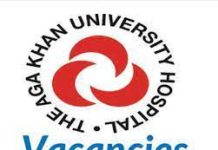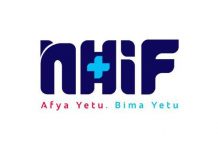Best Investment Saccos in Kenya
Here is the full list of Investment SACCOS in Kenya:
- Kenya Police SACCO
- Stima SACCO
- Waumini Sacco Society Limited
- K-Unity Sacco
- Hazina SACCO
- Unaitas Sacco Ltd Kenya
- Maisha Bora SACCO
- Harambee Sacco
I could recommend a Sacco for the many reasons that will be explained later. I will provide you with the best Saccos today because I want your tomorrow to be brighter.
List of Saccos in Kenya
What is a Sacco?
SACCO stands for Savings and Credit Cooperative which is a special type of co-operative offering financial services with a significant focus on mobilization of funds and provision of affordable credit to its members who are both the owners and users.
Saccos in Kenya may be categorized into financial and in financial cooperatives.
Non-financial cooperatives deal with the marketing of members’ products and services such as dairy, livestock coffee, tea, handicrafts, and much more similar cooperatives. On the other hand, financial cooperatives comprise Saccos, housing, and investment cooperatives
Why do we have SACCOS?
The primary purpose of a SACCO is to encourage savings among members from which they can borrow at affordable terms decided by themselves collectively or through the elected directors. Other financial services SACCOs offer include ATM, Mobile money transfer, and custody of valuable documents.
The SACCO generates income by providing these services which it uses to meet the related costs. Any income that remains after these costs is paid out to members as dividends and interest based on their shares or deposits.
What is FOSA?
FOSA stands for Front Office Services Activities and refers to the ‘banking’ like services provided by SACCOs. Through the FOSA, members of the SACCO can easily access services including cash withdrawals over the counter, ATM or mobile phone.
How does a SACCO operate?
SACCOs are managed by staff employed by the Board on behalf of the members and the Chief Executive Ofificer is responsible for the day-to-day running of the SACCO business.
The Board reports to the members on the management of the SACCO at least once a year during the annual general meeting (AGM) or annual delegates meeting (ADM).
During the AGM or ADM, the members also get a chance to assess the performance of a Sacco and make decisions concerning their SACCO.
What is a common bond?
The common bond is what unites all the members of a SACCO. All members share this in common. The members decide what unites them, this could be their occupation like farming, church, employment or where they live.
In 1993 when members of Murang’a Tea growers came together, pooling their resources, they were only interested in creating a financial basket, save and advance loans to each other at affordable rates. They had no idea the organization would be an inspiration to many.
For more information please visit: Unaitas Sacco Ltd Kenya
Kenya Police SACCO
Kenya Police Sacco was registered on 20th November 1972 and was issued with a registration certificate. The Society has had growth in its membership from a few hundred’s currently standing at 40,101.
It has 9 elected members who form the Board of Directors of the SACCO and 3 members of the Supervisory Committee. Kenya Police Sacco Society undertakes corporate social responsibility programs. For more information please visit: Kenya Police Sacco
Stima SACCO
Stima Sacco is a licensed Deposit Taking Sacco established in 1974 with the Sole objective of uplifting the members’ social economic wellbeing. In April 2003 the Sacco responded to members banking needs by introducing the Front Office Service Activity (FOSA) to offer banking services to its members.
To date, the Sacco has five branches in Nairobi, Mombasa, Kisumu, Nakuru, and Olkaria. Stima Sacco has a wide range of savings products.
These products are tailored to meet the various needs of a diversified membership with each member’s unique need being catered for in this array of products and services.
For more information please visit: Stima Sacco
Waumini Sacco Society Limited
Waumini Sacco Society Limited is a Savings and Credit Co-operative Society Limited registered in 1980 under the Co-operative Societies Act of the Laws of Kenya.
The Sacco primarily mobilizes Savings and Deposits and extends credit to its members thereby empowering them economically and socially.
Members of the Sacco are drawn from Employees of Catholic organizations in Kenya. The Sacco Currently has over 9,500 members drawn from over 500 Catholic organizations in the 26 Catholic Dioceses in Kenya.
Management is composed of the ADM, Board of Directors, Supervisory Committee, and the Sacco Secretariat’s Departmental managers. For more information please visit: Waumini Sacco Society Limited
K-Unity Sacco
Kiambu Unity Finance Co-operative Union is a co-operative union established under the Ministry of Co-operatives and Marketing, registered under the Co-operative Society’s Act Cap 490 of the Laws of Kenya.
It was established in 1974 as a result of the amalgamation of the Limuru Marketing Co-operative Union and Kiambu Dairy Marketing Union to act as a means of facilitating savings and credit facilities for Dairy & Pyrethrum societies within Kiambu County.
The Society’s Primary objective is to promote a culture of accelerated monthly savings by the members from which loans are distributed to them.
For more information please visit: Kiambu Unity Finance Co-operative Union
Hazina SACCO
Hazina Sacco is a nationwide Savings and Credit Co-operative Society established in the 1971 and registered under Co-operative Societies Act of the Laws of Kenya with the main objective of affording its members an opportunity to accumulate their savings, thereby creating a source of loanable funds.
Members of the Society are drawn from various Government Ministries, Parastatals, Non- Governmental Organizations, and Private Sector. Currently, the Society has over 10,000 members.
For more information please visit: Hazina Sacco
Maisha Bora SACCO
Maisha Bora Sacco Society Ltd is located along Factory Str in Kariba, Nairobi. It is opened from Mon – Fri 8.30am to 4.30pm and Closed on Weekends & Public Holidays.
For more information please visit: Maisha Bora SACCO
Harambee SACCO
Harambee Sacco was Set up by a handful of small income earners and struggling subordinate staff at the Office of the President (OP), way back in 1970.
The Sacco today, is a multi-billion shilling institution, with thousands of members and an expansive country-wide network that few financial institutions in Kenya can match.
For more information please visit: Harambee Sacco
Imarika SACCO
Imarika SACCO was registered on 14th, September 1974 with about 100 members who were employees of Teachers Service Commission (TSC) in KILIFI District.
Currently, the SACCO has an active membership of about 38,000 with its head office in KILIFI town with five branches in MALINDI, MTWAPA, KALOLENI, GARSEN, UKUNDA and a service center at BAMBA in Ganze District.
For more information please visit: Imarika SACCO
Kuscco Sacco
The Kenya Union of Savings and Credit Cooperatives (Kuscco) is the umbrella organization of Saccos in Kenya.
It was registered on September 27, 1973, to advocate for a level environment in which Sacco’s can do business, and provision of quality, diversified, innovative and market-driven financial and technical service.
For more information please visit: Kuscco Sacco
Mhasibu Sacco Society Ltd
Mhasibu Sacco Society Ltd was established 26 years ago and was spearheaded by the Institute of Certified Public Accountants of Kenya (ICPAK) which was driven by the wish to provide Savings and Credit facilities to its members.
The SACCO whose name means ‘accountant’ in Kiswahili currently serves members engaged in the accounting profession to include inter alia: qualified accountants yet to be members of ICPAK, students of KASNEB & ACCA, employees of institutions that offer training in accounts as well as the spouses and children of existing members.
For more information please visit: Mhasibu Sacco Society Ltd
Mwalimu Sacco
Mwalimu Sacco as formed and registered in the year 1974 under the Co-operative Societies Act as a SACCO Society whose main objective is to mobilize savings and provide credit to its members. For more information please visit: Mwalimu Sacco
United Nations Sacco Society
United Nations Sacco Society (UN SACCO) Limited is one of the Saccos in Nairobi it was started in 1975 to provide a mechanism for United Nations(UN) employees in Kenya to save and borrow at low cost to meet the employees’ socio-economic needs.
The UN SACCO membership had grown from 131 members in 1975 to 4,047 in 2011.
The UN SACCO membership had grown from 131 members in 1975 to 4,047 in 2011. In the Same period, members’ deposits have grown from Ksh. Two hundred ninety thousand to Kshs 5 billion while the share capital is at Ksh. 150 million.
The operations of the Sacco were initially done in the one-roomed office in Block G (UN complex) but the business is currently run in the UN SACCO block. The Sacco staff has also grown both in numbers and professional experience. The membership of the UN SACCO is open to all local and international staff of UN agencies.
The Sacco staff has also grown both in numbers and professional experience. The membership of the UN SACCO is open to all local and international staff of UN agencies.
For more information please visit: United Nations Sacco Society
Afya Sacco Society Ltd
Afya Sacco Society Ltd was registered on 8th May 1971 by some twenty founder members/promoters. Membership has grown progressively over the past forty years and to date there are over 38,000 members.
For more information please visit: Afya Sacco Society Ltd
Chai Sacco
Chai Sacco was registered in the year 1973 to offer financial services to KTDA employees both at the factories and Head Office. In 1999, Front Office Service Activity (FOSA) was started and has evolved to a fully-fledged Deposit Taking Society with branches in Nairobi and Litein and a marketing office in Mombasa. The Society intends to open 7 more branches and 25 marketing offices countrywide.
For more information please visit: Chai Sacco
Ufanisi Sacco Society Ltd
Ufanisi Sacco Society Ltd was registered on 6th July 1973 as a Savings & Credit Society for employees of Agricultural Finance Corporation. The Society has since opened its membership to the public.
For more information please visit: Ufanisi Sacco Society Ltd
Metropolitan Teachers Sacco Ltd
Metropolitan Teachers Sacco Ltd is to mobilize savings and offer productive and provident products and services at a competitive cost within a changing business environment while upholding co-operative ideals”.
For more information please visit: Metropolitan Teachers Sacco Ltd
Kimisitu Sacco
Kimisitu Sacco was formed in March 1985 by a group of Staff from ICRAF. The society was formed mainly to promote thrift among its members by affording them an opportunity for accumulating their savings.
And to thereby create a source of funds from which loans can be made to them exclusively for provident and productive purposes, at fair and reasonable rates of interest; thereby enabling them to use and control their money for their mutual benefit.
For more information please visit: Kimisitu Sacco
Kenya Bankers Sacco
Kenya Bankers Sacco was registered on 14th Feb 1975. The society’s core business is to mobilize savings from the members out of which credit is approved at affordable interest rates.
Its members are drawn from banks, non-bank financial institutions, building societies, and other money-related institutions. KBS is SASRA compliant, with a total membership of 18,083 as of December, 012.
For more information please visit: Kenya Bankers Sacco
Kenya Medical Association Sacco
Kenya Medical Association (KMA) is a voluntary membership organization open to all medical and dental practitioners registered in the Republic of Kenya. The Association currently has over 2,000 members countrywide.
Because the SACCO is designed by medical doctors who understand the dynamics of the medical profession and the enormous demands of a doctor’s time, KMA Sacco is a ‘one-stop financial partner’ for the medical practitioner, both young and old.
For more information please visit: Kenya Medical Association Sacco
Saccos in Kenya – What is SASRA and what is its role?
SASRA stands for the SACCO Societies Regulatory Authority. it is an organization started by the government to ensure the safety of members’ deposits in SACCOs operating FOSA. SASRA licenses and supervises the SACCOs operating FOSA. Any Sacco intending to start a FOSA must be licensed by SASRA before operations.
Who has given SASRA authority to supervise deposit-taking (FOSA) SACCOS?
SASRA was started by the government in accordance with the new SACCO law (Sacco Societies Act, 2008) to license, regulate and supervise deposit-taking (FOSA) SACCOs.
Saccos in Kenya – When did the new SACCO law start?
The new SACCO law (Sacco Societies act 2008) was operationalized on 26th September 2009
Saccos in Kenya – Can SASRA stop a SACCO from failing?
SASRA’s responsibility is to try to prevent failure by ensuring SACCOs comply with standards set in the new law to ensure they remain in operation. This is done by carrying out the inspection of the SACCO both from SASRA offices and at the SACCOs to see if there are signs of possible failure.
Saccos in Kenya – Which SACCOS should apply for licensing?
A: Any SACCO Societies with a FOSA or those planning to operate a FOSA have to apply for a license. A SACCO should obtain licenses for its head oifice and each of the branches (FOSAs).
A SACCO license is valid for one calendar year ending 3lst December and is regardless of the date of licensing. A licensed SACCO is required to apply for renewal of a license at least ninety (90) days before the expiry of a license which would be by end of September of each year.
Saccos in Kenya – What happens if a Sacco starts operating a FOSA without a license or does not renew its License(s)?
If this happened SASRA would be forced to close the FOSA and charge the SAC(Os officers responsible as operating a FOSA without a license is an offense.
Saccos in Kenya – What happens to a Sacco that applies and does not meet licensing requirements?
Upon application for a license, SASRA shall advise each SACCO accordingly.
Saccos in Kenya – I have a complaint about my SACCO. Can SASRA help me?
Yes, SASRA can assist in matters pertaining to regulatory or criminal wrongdoing by the Saccos or its board of directors and staff. your complaint pertains to a regulatory or criminal matter, you can submit your complaint with our office.
However, the new Sacco law has not addressed issues to do with individual share refund issues, member and SACCO contractual agreements, any legal issue that involves an individual member and his/her SACCO are can be guided by the Sacco by-laws.
Saccos in Kenya – How do I know whether my Sacco is licensed by SASRA?
All the licensed SACCOs are gazetted in the Kenya Gazette, in addition, SASRA publishes all licensed SACCO societies in the leading daily newspaper every beginning of the year. This list is also available on SASRA website, www.sasra.go.ke. Finally, licensing is
such an important legal issue that the Board of your SACCO will
always inform the members through the AGM or ADM.
Types of Registered SACCOS in Kenya
Saccos in Kenya – Diaspora Sacco
To ensure they are felt back home, Kenyans in the diaspora have formed Saccos, through which they can invest in property and business.
Diaspora remittances are growing at a rate of 43 percent year on year. The Diaspora Sacco intend to harness these individual small streams into a mighty river of collective power and channel them into investment projects, which can attract even higher remittances.
The Kenya USA Diaspora Sacco was launched during the 2012 Kenya Diaspora Conference — the USA in Arlington, Virginia. This was the second Diaspora Sacco established after the Cooperative Development Ministry registered Kenya Diaspora Sacco in April 2012.
The Sacco enables Kenyans living in the United States to access capital and fully participate in emerging markets in Kenya as Well as the opportunities in the East African Community.
The Sacco plans to launch a chapter in every state in the US to make sure every Kenyan living in the US has access to affordable credit.
Kenyans in the United Kingdom also launched a Sacco, which was the third diaspora society.
Saccos in Kenya – Youth Saccos
With 73 percent of Kenya’s population under the age of 30 and 43 percent under the age of 15, the youth factor is an important social-political and economic factor.
The cooperative movement, therefore, has in the past tried to ensure that this populace is absorbed into the sector. The 2011 World Cooperatives Day, popularly referred to as Ushirika Day, celebrations intentionally focused on the youth, under the theme Youth, the Future of Cooperative Enterprise. There is a consensus that the youth have not been keen to join the movement because they consider cooperatives as clubs for elderly people.
The Ministry of Cooperatives is working closely with the youths to ensure they provide whatever is close to their hearts.
As part of the efforts, the Cooperative Insurance Company (CIC) in partnership with the Ministry, is involved in promoting the cooperative model of an enterprise to the youth, with university students a key target.
A campaign dubbed I’m a Co-operator seeks to impress upon young people the importance of cooperatives as a development tool that can effectively transform lives economically and socially.
Other ventures of interest include the introduction of boda-boda businesses in which youths are encouraged to form groups through to buy motorbikes for the boda-boda businesses.
Cooperative Bank is targeting the youth with special packages like investing in specific items for their groups, such as motorbikes, vehicles, computers, and laptops.
Yet another area of exponential growth in the ICT sector Where
Saccos in Kenya – Matatu Saccos
To bring sanity to public transport, matatu and bus operators had to organize themselves into cooperatives of companies for ease of management and enforcement of discipline.
It was mandatory for all those seeking a Transport Licensing Board (TLB) certification to be members of a Sacco or belong to a company. About 1,000 matatu Saccos and 400 companies have been registered.
Matatu operators, who constitute 80 percent of the public transport system, are estimated to have an annual turnover of Kshs73 billion.
To its credit, the sector buys Kshs4 billion insurance premiums every year and remits Kshs1 billion taxes annually.
The Matatu Saccos have played a significant role in the growth of public transport and some have now become respected brands in the sector.
The Saccos proved to be the most viable way to manage large public transport fleets. They have also been pioneers in changing the image of public transport, which was dominated by rogue drivers and touts without regard for traffic rules.
With the expected phasing out of the 14-seater vans, cooperative societies are poised to play an even bigger role in supporting the government’s initiative.
Saccos in Kenya – Housing Saccos
There are currently 440 housing cooperatives (248 actives) under the umbrella of Nachu. With the development of the movement, it’s a guarantee that low-income earners can access affordable and decent housing.
Cooperatives have also invested in commercial buildings countrywide.
The landscape of most urban centers is covered by cooperative owned buildings such as Harambee Plaza, Afya Centre, Hazina Towers, Kuscco Centre, Cooperative Bank House, Meru Mwalimu Plaza in Meru and Ndege Chai Plaza in Kericho.
Saccos in Kenya – Education Saccos
A quarter of the nearly Kshs200 billion goes towards financing education.
Indeed, cooperatives have provided successful models to encourage savings and access affordable credit to about 95 percent of the 278,000 teachers employed by the TSC and an equal percentage in private learning institutions.
The movement has also invested in training institutions, such as the Cooperative College of Kenya.
Various cooperative societies have directly invested in institutions of higher learning, including Bartek College (Baringo Teachers Sacco), and South Imenti Sacco. Teachers Sacco are instrumental in raising living standards for the members and providing seed money for teachers to start businesses in housing, transport, agriculture, and trade.












